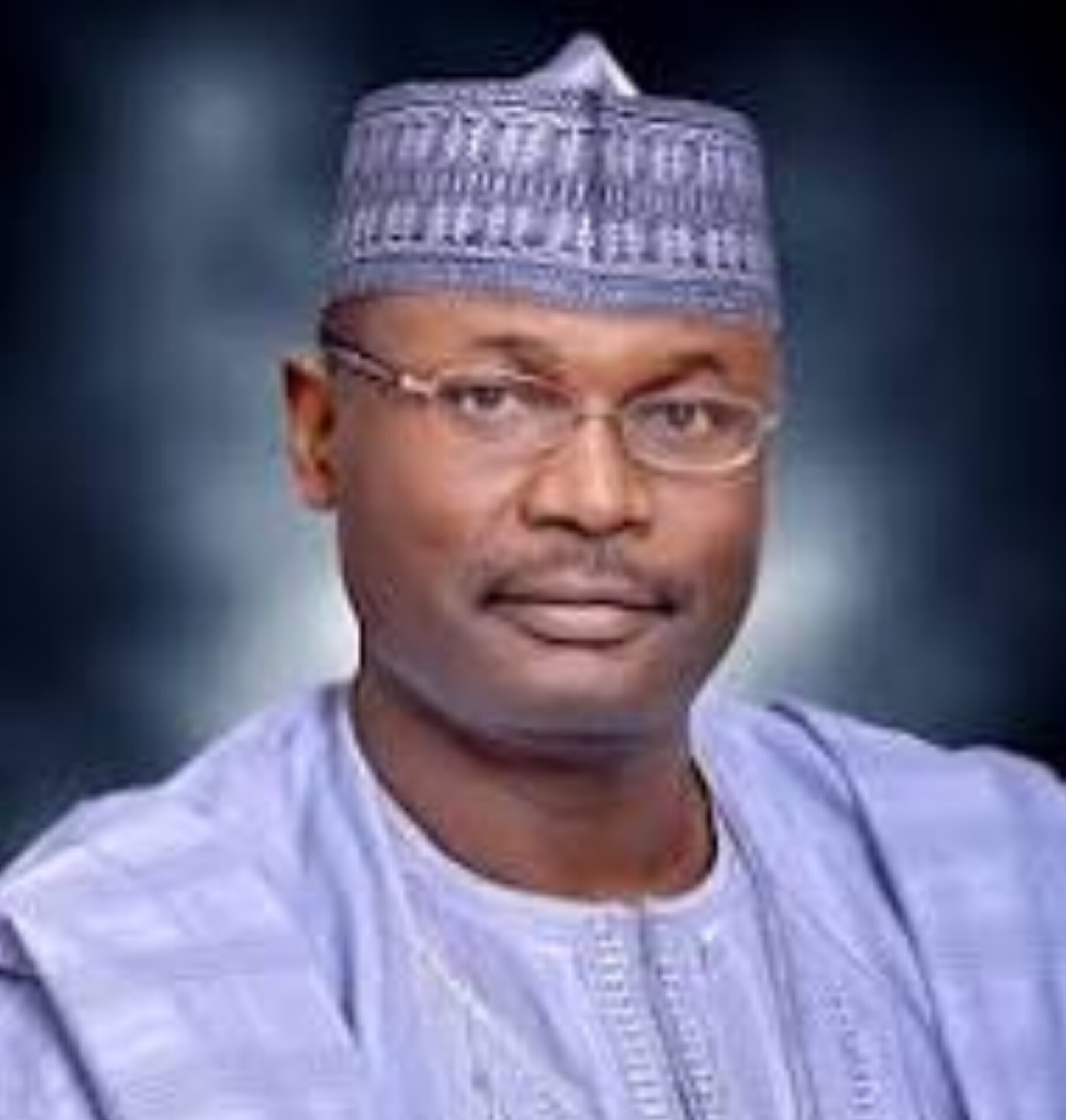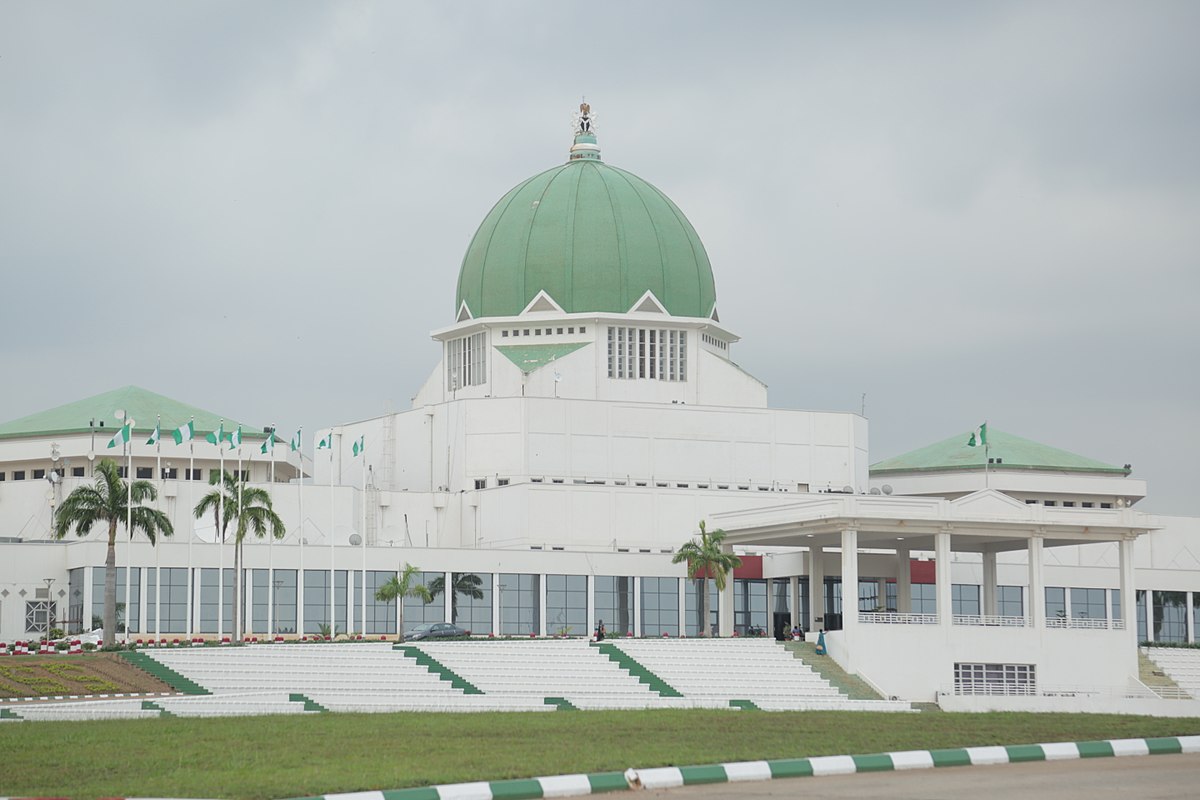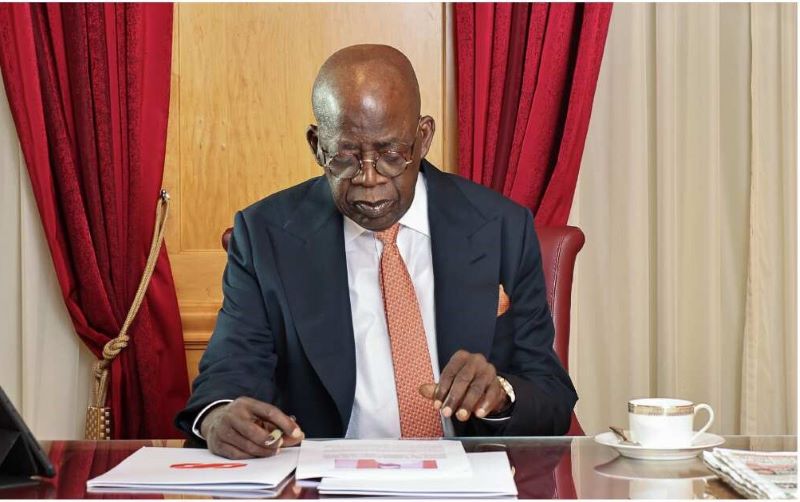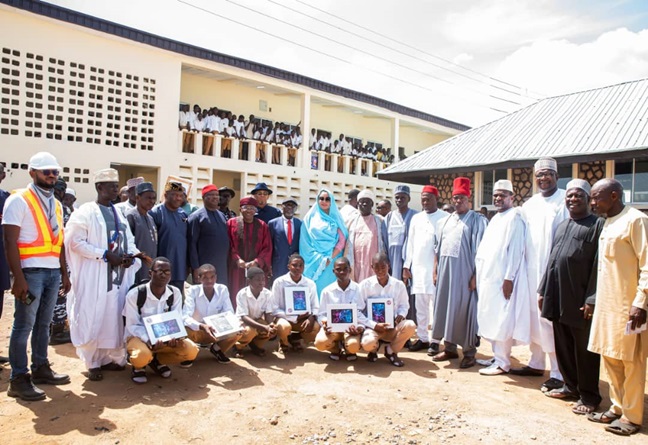Legislature
Why INEC should also handle LG polls, by Prof Mahmoud Yakubu

The Chairman of the Independent National Electoral Commission (INEC), Prof Mahmoud Yakubu
on Thursday declared that with necessary resources the electoral umpire has the capacity to conduct the local government elections in the country.
Yakubu gave the indication on Thursday when he appeared before the National Assembly Joint Committee on the INEC and Electoral Committees.
The INEC helmsman spoke while reacting to a poser from members of the National Assembly joint committee on the position of the commission on the Supreme Court verdict regarding the financial autonomy for Local Government.
Yakubu said he was aware of the agitations for the unbundling of INEC or creation of a new federal agency for the purpose of conducting Council polls.
He however, announced that INEC under his leadership has the capacity, competence, human resources and adequate experience to conduct local government elections across the 774 councils across Nigeria.
Mahmoud used the successes already recorded by the commission in the six Federal Capital Territory Area Councils, including frequent off season and bye election to buttress his position
Having been conducting elections at the federal and state levels over the years successfully, the INEC helmsman said it is more than enough indication that it has all it takes to conduct council polls.
Yakubu said, “So if this responsibility for the conduct of local government elections is transferred to INEC, can INEC cope? The answer is yes, INEC can cope. What are we? By definition, INEC is the Independent National Electoral Commission.
“Right now, we do national elections, we do state elections, we do local government elections.
“A national electoral commission may be expected to implement only the presidential and National Assembly. We also do governorship elections, we do state assembly elections, and we do the area council elections in the Federal Capital Territory.
“Our track report actually proves that we can do it. Take the case of the Federal Capital Territory. I would like to say one or two things about the FTC local government elections.
“There are six area councils of the FCT. So there are six chairman of area councils, there are 62 wards in the FCT. Each ward has a councilorship for the election of councils.
“This is one part of the country where INEC has conducted local government elections and it has resulted in the following.
“First, it is perhaps the only part of the country where local government elections are held regularly.
“Second, there has never been a caretaker committee for any area council in the FCT. INEC has been conducting the elections regularly.
“Thirdly, there is stability of tenure or security of tenure. It used to be three years, but in 2022, the National Assembly amended the Electoral Act to provide for a four-year tenure for area councils in the FCT. So they enjoy security of tenure..
“No single political party has ever won elections in all the constituencies in the FCT, not one.
“In fact, what is interesting now is that out of the six chairmen of the FCT, actually the council and the constituencies are evenly split between the All Progressives Congress and the Peoples Democratic Party which won three councils apiece.”
The Chairman also noted that FCT councils are made up of urban and rural communities, an indication that it has adequate experience to do so in any part of the country.
He said, “So in terms of capacity to do it, we can do it, we have been doing it in the federal capital territory.
“However, if the decision of the National Assembly is to amend the constitution. I need to put that responsibility back to you we need an engagement with the National Assembly.
“There are certain special amendments that are to be done for us to be able to handle those additional responsibilities.
“For instance, will the Federal Government continue to fund the elections for the states and the local government will fund this?
“The second proposition we have had is that there should be a new federal electoral commission for local government elections.
“Sadly, there is another argument that does not want the state electoral commissions to conduct local government elections in the spirit of federalism, but they should find a way of ensuring that they improve on the conduct.
“Right now, the law has not been amended. The same constitution that creates INEC also creates the state independent electoral commissions.
“So it is up to the National Assembly to amend the law to transfer that responsibility to INEC. If that is done, the question is can INEC cope? Yes we can.
“We have said that we should not be unbundled beyond the conduct of electoral activities rather than elections. There are two activities we handle. That is what is called electoral activities, not necessarily related to elections.
“We believe that some of these responsibilities can be handled by other agencies. And this point has been made consistently since 2008 by committees establishedto reform our electoral processes beginning with the Justice Mohammed Uwais Commission in 2008, that some responsibilities should be removed from the Independent National Electoral Commission.”
Yakubu assured the joint panel that the commission had made adequate arrangements to conduct the two off-cycle elections in Edo and Ondo State.
He also said the commission had prepared budgets for the outstanding by-elections about seven federal and state legislative constituencies.
Yakubu also explained to the federal lawmakers that the agency’s 2024 Budget is currently being adequately funded by the Ministry of Finance.
He said, “In terms of the performance of the N40 billion appropriated for the commission in the 2024 budget, Yakubu said the Ministry of Finance broke INEC budget into 12 tranches.
He said, “Every month they give us one-twelfth of the budget for the year. And for the last seven months, since the beginning of this year, the Ministry of Finance has been releasing the sum of N23.3 billion to the Commission, which is one-twelfth of the 40 billion as of yesterday (July 24)
“The monthly releases to the Commission, this year, is now N23.3 billion out of 40 billion. That is 58.3%. What is outstanding is N16.6 billion amounted to 41.67% not released.
Legislature
NASS modifies NDLEA Act, Prescribes Life Imprisonment for Drug Traffickers

The National Assembly has modified the National Drug Law Enforcement Agency (NDLEA) Act to prescribe life imprisonment for individuals found guilty of storing, transporting, or concealing illicit drugs and substances.
The amendment was adopted on Thursday during plenary, presided over by Deputy Senate President Barau Jibrin, following broad support from the senators.
The amendment reflects a harmonised position of the Senate and the House of Representatives on Section 11 of the NDLEA Act.
The House had earlier passed an amendment prescribing life imprisonment for drug traffickers, while the Senate had proposed the death penalty.
To reconcile the differences, a conference committee of both chambers was convened. Senator Tahir Monguno, Chairman of the Senate Committee on Judiciary, Human Rights, and Legal Matters, presented the harmonised version to the Senate.
He urged lawmakers to adopt the House’s position of life imprisonment, arguing that enforcing the death penalty could lead to the execution of over 900 accused persons currently awaiting trial for drug-related offenses.
The Deputy Senate President who presided over the plenary had put the resolution to a voice vote, and the majority of senators supported the amendment.
The approved version stipulates life imprisonment for offenders.
The amended section now reads:
“Anybody who is unlawfully involved in the storage, custody, movement, carriage, or concealment of dangerous drugs or controlled substances and who, while so involved, is armed with any offensive weapon or is disguised in any way, shall be guilty of an offence under this Act and liable on conviction to be sentenced to life imprisonment.”
This amendment aims to strengthen the fight against drug trafficking while addressing concerns over human rights and the judicial implications of the death penalty.
The move is part of efforts to curb the growing menace of drug trafficking and its adverse effects on Nigerian society. According to Senator Monguno, the life imprisonment penalty strikes a balance between deterrence and humane judicial practice.
With the amendment, the NDLEA now has a robust legal framework to prosecute offenders and combat drug-related crimes effectively.
Legislature
President Tinubu urges Senate to approve ₦1.767trn External Loan

President Bola Ahmed Tinubu has formally requested the National Assembly’s approval for a $2.209 billion (₦1.767 trillion) external borrowing plan to finance part of the ₦9.17 trillion fiscal deficit in the 2024 budget. The loan, included in the 2024 Appropriation Act, is critical to the government’s broader strategy for economic recovery and growth.
In a letter to Senate President Godswill Akpabio, President Tinubu noted that the borrowing aligns with the provisions of Sections 21(1) and 27(1) of the Debt Management Office (DMO) Establishment Act, 2003. He also indicated that the Federal Executive Council (FEC) had approved the plan.
The President explained that the funds would be sourced through Eurobonds or similar external financial instruments. A detailed summary of the loan’s terms and conditions accompanied the letter to guide legislative scrutiny.
“This borrowing is necessary to address the budget deficit and fulfill our fiscal strategy for 2024. Swift approval will enable us to move forward with mobilizing these funds,” the President stated, emphasizing the urgency of the request.
Senate President Akpabio referred the matter to the Committee on Local and Foreign Deb
Legislature
Senator Natasha Transforms Kogi Central Schools with 5,000 Digital Learning Devices

By Isah Bala
Access to quality education is a cornerstone of societal progress, and Senator Natasha Akpoti-Uduaghan is embodying this vision by bringing transformative educational tools to Kogi Central. In a groundbreaking initiative, the senator recently provided 5,000 digital learning devices to public primary and secondary schools in her district, aiming to bridge the digital divide and set a new educational standard.
The devices, unveiled at Abdul Aziz Attah Memorial College (AAAMCO), are preloaded with the Nigerian curriculum from UBEC and internationally acclaimed educational resources, including Khan Academy and Discovery Kids. Through this initiative, students will experience interactive learning, enabling them to explore subjects in depth, enhance digital literacy, and engage with complex topics in a hands-on way.
This project is just the beginning of Senator Natasha’s ambitious plan to make “smart schools” the norm in Kogi Central. She envisions a future where every child in her district has equal access to digital learning, stating, “My dream is to equip all public primary and secondary schools in Kogi Central with digital learning devices before the end of my tenure in 2027.”
Beyond device distribution, the senator’s initiative includes UBEC-led teacher training to ensure educators are equipped to integrate these tools into their classrooms effectively.
With this dual approach of student and teacher empowerment, Senator Natasha is laying a foundation that will support digital literacy and skill development for years to come.
Senator Natasha’s commitment to educational advancement represents a significant step forward for Kogi Central, ensuring that young students have access to the tools they need to succeed in an increasingly digital world. This initiative marks her dedication to the constituency that entrusted her with this mandate.
-

 Crime1 year ago
Crime1 year agoPolice nabs Killer of Varsity Lecturer in Niger
-

 News10 months ago
News10 months agoFCT-IRS tells socialite Aisha Achimugu not to forget to file her annual returns
-

 Appointment1 year ago
Appointment1 year agoTinubu names El-Rufai, Tope Fasua, others in New appointments
-

 News From Kogi1 year ago
News From Kogi1 year agoINEC cancells election in 67 polling units in Ogori-Magongo in Kogi
-

 News From Kogi1 year ago
News From Kogi1 year agoEchocho Challenges Tribunal Judgment ordering rerun in 94 polling units
-

 News1 year ago
News1 year agoIPOB: Simon Ekpa gives reason for seperatists clamour for Biafra
-

 Metro8 months ago
Metro8 months ago‘Listing Simon Ekpa among wanted persons by Nigeria military is rascality, intimidation’
-

 News10 months ago
News10 months agoKingmakers of Igu/ Koton-Karfe dare Bello, urge him to reverse deposition of Ohimege-Igu
